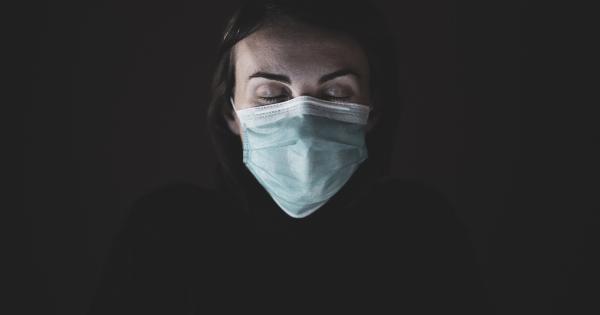Our eyes are delicate organs that are susceptible to various infections. These infections can cause discomfort, pain, and even vision problems if left untreated. Fortunately, many eye infections can be avoided by taking simple preventive measures.
In this article, we will discuss five common eye infections and ways to avoid them.
1. Conjunctivitis (Pink Eye)
Conjunctivitis, commonly known as pink eye, is an inflammation or infection of the conjunctiva, the thin clear covering of the white part of the eye and the inner surface of the eyelids.
It is highly contagious and can spread through direct or indirect contact with the eye secretions of an infected person. To avoid pink eye:.
- Avoid touching your eyes with unwashed hands.
- Wash your hands regularly with soap and water, especially after coming in contact with someone who has pink eye.
- Avoid sharing personal items such as towels, eye makeup, or contact lenses with an infected person.
- Practice good hygiene and avoid touching public surfaces, such as doorknobs or railings, that may be contaminated.
2. Stye
A stye is a red, painful bump that forms on the eyelid. It occurs when the oil glands in the eyelids become infected or blocked. Styes are usually caused by bacteria and can be avoided by:.
- Washing your hands before touching your eyes or applying any eye makeup.
- Avoiding the sharing of cosmetics or eye products with others.
- Removing eye makeup before going to bed to avoid blockage of oil glands.
- Keeping your eyelids clean by gently washing them with warm water and mild soap.
- Avoiding rubbing or squeezing styes, as it can worsen the infection.
3. Blepharitis
Blepharitis is a common eye condition that causes inflammation of the eyelids. It is usually caused by bacteria or a skin condition. To prevent blepharitis:.
- Clean your eyelids regularly using a warm washcloth or eyelid cleanser.
- Avoid rubbing your eyes excessively, as it can further irritate the eyelids.
- Avoid using expired or contaminated eye makeup.
- Wash your hands before touching your eyes or applying any eye products.
- Remove your contact lenses before going to bed and follow proper hygiene practices for their storage and cleaning.
4. Corneal Ulcers
A corneal ulcer is an open sore on the cornea, the clear front surface of the eye. It is often caused by an infection resulting from a bacterial, viral, or fungal organism. To prevent corneal ulcers:.
- Avoid wearing contact lenses while swimming or in environments that may expose your eyes to bacteria or fungi.
- Follow proper hygiene practices while handling and caring for your contact lenses.
- Replace your contact lens case every three months to avoid contamination.
- Wash your hands thoroughly before touching your contact lenses or your eyes.
- Seek immediate medical attention if you experience any eye redness, pain, or vision changes.
5. Ocular Herpes
Ocular herpes is a viral infection caused by the herpes simplex virus (HSV). It can affect various parts of the eye and may cause long-term vision problems. To reduce the risk of ocular herpes:.
- Avoid direct contact with individuals who have active oral or ocular herpes lesions.
- Avoid touching your eyes or face without washing your hands first.
- Do not share personal items such as towels, pillows, or cosmetics with individuals who have active herpes infections.
- Keep your immune system healthy through proper nutrition, rest, and stress management.
- Wear sunglasses or eye protection when exposed to sunlight or potentially irritating substances.
Conclusion
By implementing proper hygiene practices and taking preventive measures, you can greatly reduce the risk of developing these common eye infections.
Remember to wash your hands regularly, avoid touching your eyes, and practice good hygiene when using eye cosmetics or contact lenses. If you notice any symptoms of an eye infection, it is crucial to seek prompt medical attention to prevent complications and protect your vision.




























